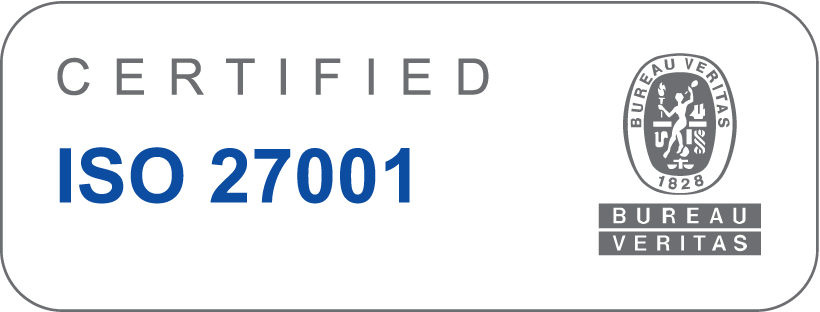Croatia and adoption of euro

Croatia and adoption of euro
Transition to a new currency is a large-scale and complex task for the banking system. To ensure cash withdrawals and payments in euros, execution of other transactions and management of all aforementioned in the new domestic currency, from the specific date onwards, a lot of preliminary work by a large number of teams was required. Core banking system Hibis, advantages of which are used by 10 banks and savings banks in Slovenia and 3 banks in Croatia, ensured a smooth transition when changing Croatian kuna to euro for all its users Teams of experts from Hrc and the bank combined their knowledge and experience to carry out all the activities needed before, during and after the transition to euro. Both sides together ensured the transition to euro went successfully.
Croatia joined euro area on January 1, 2023
Croatian national currency kuna became history and was replaced by the European currency, as on January 1, 2023 Croatia joined the euro area and became 20th member state of Eurozone. On July 12, 2022, the Council of the European Union has officially approved Croatia's entry into Eurozone. Long before the transition was officially confirmed, Hrc already started to actively work on this large-scale project. Transition to euro in Croatia took app. a year and a half - from June 2021 until January 2023 with the end of stabilization period.
Scope of the project of transition to a new currency
The process of bank’s migration from (then) current domestic currency (kuna) to a new currency euro was one of the key tasks in eurotransition project in Croatia. Success largely depended on the high-quality implementation of tasks, e.g. adapting software solutions to the needs of the bank, developing interfaces, training software users and technologists to work in a new environment.In addition, the project required synchronized operation of several partners at the same time: transition to a new currency also means changes in the card processing centres.
Statistics:
Project duration: 18 months
Participating team size: 50+
No.of meetings with banks: 60+
No.of internal coordinations: 90+
No.of test migrations/simulations: 4
Cut off (production migration): 1
Durationof migration: 34 - 40 hours (depending on the size of the bank and the complexity of their architecture)
Migration process from kuna to euro
Transition to euro in Croatia is considered to be a complex project and one of the largest in the last 15 years. Hrc's key advantage in ensuring the transition is its rich experience from 2007, when 11 banks migrated from tolars (Slovenian currency) to euros. However, many things have changed in both banking and the financial environment since then. Support for banking operations is broader, there are significantly more regulatory requirements, process centres have undergone changes, electronic and mobile banking have been established as everyday practice to this day, and with them necessary provision of services every day and every hour along with the stable operation of the system without interruption 24/7.
In addition to a successful transition to euro, the project resulted in additional benefits for our partner banks– results that will be in use after the transition to the euro environment:
- system optimization
- consolidation of products and data ("cleaning" of peculiarities)
- updated lists of all processes and connections with the bank's external systems
- consolidation of all output documents to the end user
With good preparation and effective cooperation with our excellent clients from Croatia, we completed the work within the given timeframes and overall very successfully.


The introduction of the euro as the new currency of the Republic of Croatia was one of the most demanding projects in the history of Addiko Bank. Adaptation of banking applications, products and interfaces represented a very extensive and complex project and several months of preparation of all sectors of the bank.
The supplier HRC d.o.o. was of great importance for the successful and timely implementation of a project of this scale. From the very beginning of the project, HRC employees participated in numerous analyses, test conversions and finding optimal solutions for converting the Hibis system from the Croatian kuna to the euro with our experts.
The joint engagement of the team of Addiko Bank and HRC, along with a professional and friendly approach, made it possible to successfully overcome all the challenges that came with the introduction of the new domicile currency. The success of the project's implementation is confirmed by the fact that Addiko banka was among the first institutions to complete the conversion process from the kuna to the euro. We are proud to have been a partof this historic moment with HRC.

Euro project was by far the most complexed, comprehensive and critical project for Addiko Bank Croatia in the recent history. There was no organizational unit within the institution that was not included and somehow contributed on the long path to successfull Euro tranzition.
HRC contribution in that way was crucial.
I am very pleased that I can proudly confirm that Addiko Bank has a very close and intensive collaboration with reliable strategic partner, that can be counted on in critical situations when professionalism and expertise come to the fore. Fostering a culture of open communication paired with a professional approach to every challenge we face together, I can confirm that HRC is truly a partner that can be counted on todeliver what it takes.

As a user of HRC's modern bank solution and a with a good work knowledge and experiences with Hrc commitment, we actually expected such a great success of the Euro project. We successfully completed the migration process of the bank from the existing domestic currency (kuna) to the new currency (euro) as the first Bank in Croatia without a single user complaint from our client.







